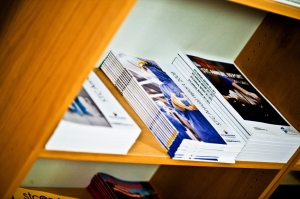As a follow on to the workshop on writing up the thesis, I ran a session on the final examination process for the research degree at UWE.
What I try to do with these sessions is two-fold:-
- Knowledge is power – much of the process is organised by others but if the doctoral candidate knows who is supposed to be doing what and when it makes it easier for them to keep things on track (i.e. nudge their supervisors..)
- Reduce anxiety – there is a lot of uncertainty around the viva, most people will never have had experience of an oral examination so I try and say as much as I can about how it will be conducted
The workshop slides I used are below and the first half sets out how it is done at UWE (it may be slightly different at other HEIs) with the second half being dominated with as much advice as I could muster about preparing for and surviving (!) the viva. More recently, a scholar who writes about the doctoral journey, Professor Gina Wisker, presented some of her work to research students in the Department of Arts. Some interesting observations about What Doctoral Examiners look for.
The basic hints and tips are these:-
- know your field
- know your thesis
- be clear about your ‘significant contribution’
- be enthusiastic!
A question that often comes up is “what questions will be asked?”. Unfortunately I don’t have the power of prediction and every viva is different, however the opening exchange will always be around giving you, the candidate, the opportunity to summarise your thesis. This is something you can prepare for by talking to people about your work as an overview, what’s the big idea, what excites you about it, what are the key things that have come out of it etc.
Again there are some great hints and tips out there to draw upon, here’s a few…
- Vitae – Completing your doctorate
- PORT (postgraduate online research training) video – preparing for you viva
- PORT (postgraduate online research training) video – The Examiner’s point of view
- PORT (postgraduate online research training) video – Opening questions
- PORT (postgraduate online research training) video – The viva as an experience
- Tara Brabazon (Times Higher) – Take the heat out of trial by fire
- The Viva Survivors podcast site from Dr Nathan Ryder
Some final thoughts:-
Although the viva is a hurdle to overcome, try to think of it as a golden opportunity to have a good natter about your research. It is unlikely that you will ever have this much attention from other scholars who are interested in your work! Many fruitful collaborations begin after a viva exam, it could take your research down a new avenue.
I also think it is important to try to stay cool (I know that’s easier said than done) and to ask for clarification on questions you don’t understand by saying things like “I’m not sure if I’ve understood, are you asking…?” Don’t be tempted to launch into an answer to a question that wasn’t asked!
If you are a UWE researcher, then have a look at the research degrees webpages and read the document that is given to independent chairs (at UWE we have an independent chair to facilitate the exam process to ensure that candidates are given fair treatment) as it sets out exactly how the examination will be conducted from a practical point of view.
Last words:- Be confident, you wrote the thesis and you know more about it than anyone else. So demonstrate confidence with authority, you’ve earned it!
Tagged: Final Viva voce, Hints


































